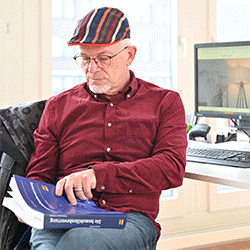If you know that you and your siblings will inherit a house from your father or an aunt, it may be advisable not to wait until after the death to transfer it to the descendants. It is often more expedient for the testator to transfer his or her assets during his or her lifetime, i.e. to make a gift. On the one hand, this creates legal clarity because the will of the testator is clearly regulated. In addition, high tax allowances can be claimed.
Especially in the case of real estate, such an anticipated inheritance can be advisable, because a house or a flat, unlike financial assets, cannot be divided. And real estate heirs are not always in a position to pay the inheritance tax due and to pay out their siblings proportionately according to the value of the real estate. In the worst case, they have to sell it.
If you want to save your descendants high tax payments, you can make a gift of your real estate. The donor can agree that the gift will take effect at his death ("cold hand"); however, he can also favour close relatives during his lifetime with a warm hand. In both cases, the beneficiaries must pay gift tax on the property. The amount depends on the degree of relationship to the donor, the recipient's tax bracket and the tax allowances.
Direct descendants such as children have an allowance of 400,000 euros each. This can be claimed every ten years when making a gift inter vivos. The catch is that the property may not be sold during this time. The market value is used as the basis for determining the tax. Registered residential rights have a tax-reducing effect because they rightly reduce the value of the property and it would be more difficult to sell it with this usufruct.
No donor need fear losing his or her claims to real estate ownership after the transfer. His risks can be contained with residential and usufructuary rights. With the latter, the benefactor retains the right to use the property and collect rents even after the transfer. At the same time, he pays for running costs. These legal ties are entered in the land register.
In serious cases, the donation can be reversed due to gross ingratitude. Furthermore, a reservation of reclaim can be agreed in the notarial contract.
If bricks and mortar assets are to be transferred to distant relatives such as nieces or godchildren to whom one is not related, it is possible to adopt them. They are then treated like biological children for tax purposes. Accordingly, they benefit from high tax allowances if a property is given away or bequeathed to them.
People often avoid the topic of giving away and bequeathing during their lifetime because they do not like to deal with their own transience. However, clear agreements after death may prevent many disputes. Before their death, testators often verbally promise their descendants a property or financial assets. In fact, however, such declarations of intent have no relevance.
Are you thinking of giving a property as a gift or do you want to transfer a property yourself? We can help you to assess the value.
Photo: sqback









